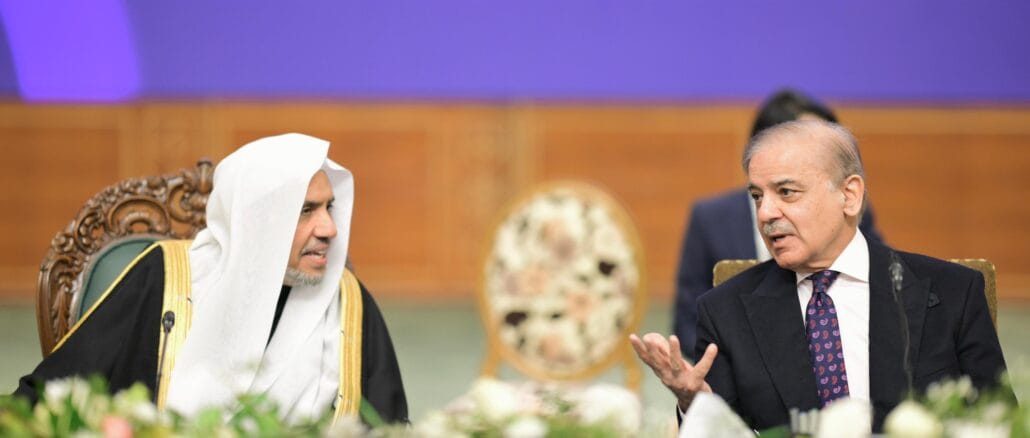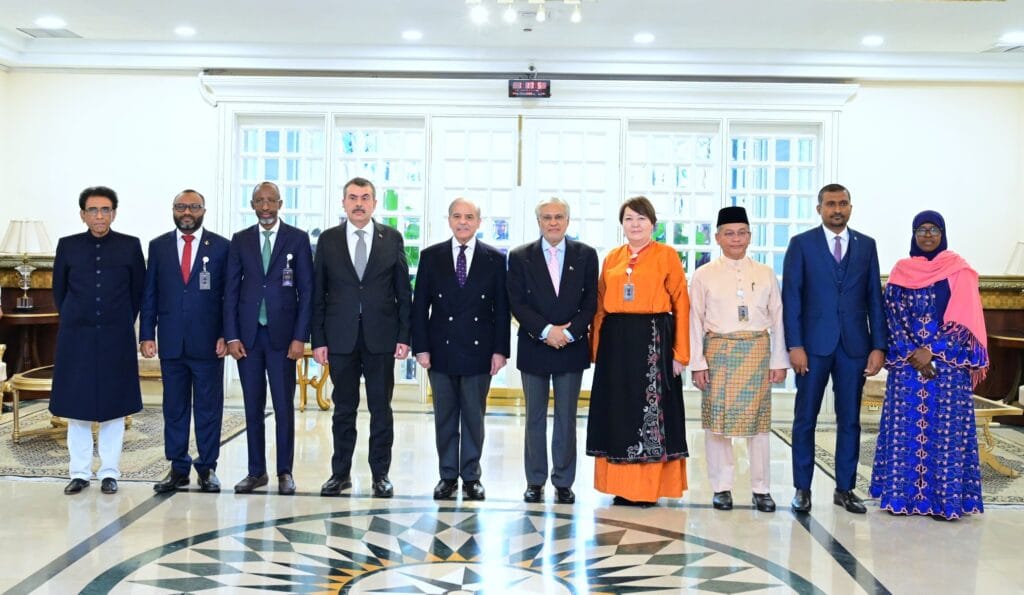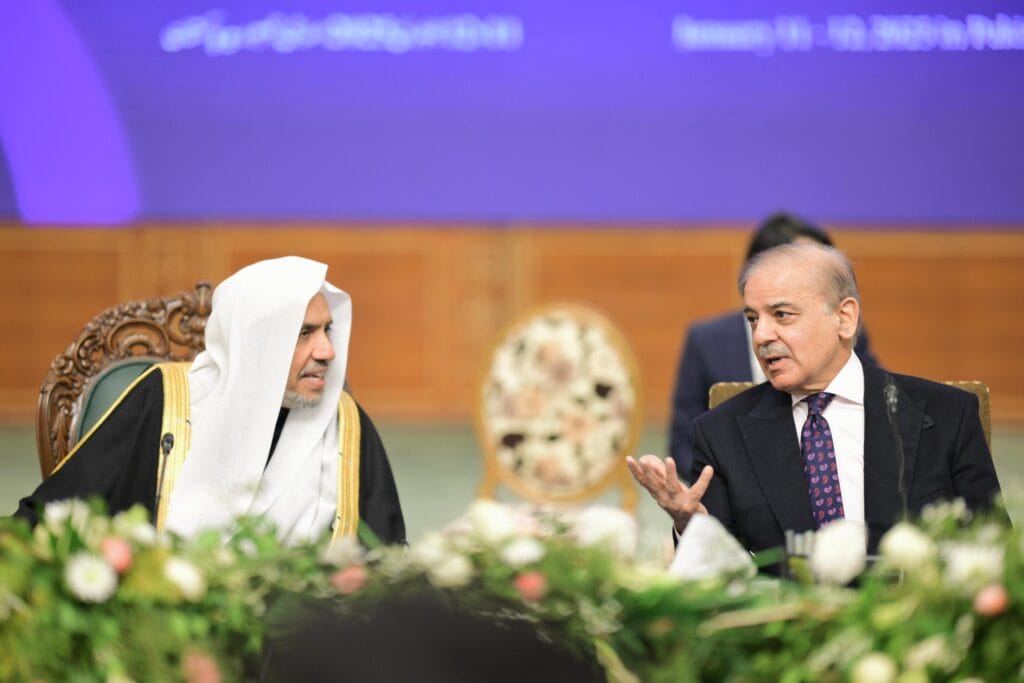
[publishpress_authors_box]
ISLAMABAD (Saturday)— Islamabad is hosting a two-day international conference on the importance of girls’ education in Islamic countries and communities. The event opened today and has attracted over 150 delegates from 44 Islamic nations and various international organizations.
According to Pakistan’s Ministry of Foreign Affairs, the conference’s primary goal is to explore challenges and opportunities surrounding girls’ education in Islamic societies. Pakistan’s Minister of Education, Dr. Khalid Maqbool Siddiqui, revealed during a Friday press briefing that the Taliban were invited but declined to attend. No representative from Afghanistan was present.
“We invited Afghanistan, but no officials from the interim government participated,” Dr. Siddiqui told AFP.
This marks the first high-level conference openly addressing the subject of girls’ education in Afghanistan since the Taliban imposed stringent restrictions on women and girls’ access to education and employment.

Pakistan Hosts Conference Amid Heightened Tensions
The conference comes at a time of increasingly strained relations between Pakistan and the Taliban-led government in Afghanistan. Tensions along the Durand Line have escalated in recent months, with reported clashes and cross-border artillery shelling in Kunar’s Sarkano and Dangam districts. Pakistani airstrikes in Khost have also drawn widespread condemnation across Afghanistan.
Additionally, reports of intensified arrests and harassment of Afghan refugees in Pakistan have further complicated the bilateral landscape. In the past week alone, over 800 Afghan refugees have allegedly been detained in Islamabad. Many claim they were apprehended despite holding valid legal documentation to reside in Pakistan.
Taliban’s Record of Non-Participation
Although the Taliban have occasionally shown interest in international forums, they have a history of either not being invited or opting out of attendance. Mohammad bin Abdul Karim Al-Issa, head of the Muslim World League, and Dr. Hussein Ibrahim Taha, Secretary-General of the Organization of Islamic Cooperation (OIC), jointly proposed this particular conference. Both leaders are present for the proceedings.
Held under the banner “Girls’ Education in Islamic Societies: Challenges and Opportunities,” the conference is focused on devising practical strategies to overcome the barriers that continue to hinder girls’ education in many Islamic nations.
Afghanistan and Pakistan: Shouldering the Burden
Afghanistan remains the only country in the world where the ruling government enforces outright bans on education and employment for women and girls, drawing international condemnation for violating fundamental human rights. In September 2021, the Taliban government suspended secondary education for girls. Although some Taliban officials have expressed dissent over the decision, the ban has remained in place for nearly three years, still labeled a “temporary suspension,” yet with no end in sight.
While Pakistan advocates for greater educational opportunities for girls, it too faces substantial challenges, particularly in remote regions where cultural and economic obstacles are pervasive. Official data indicate that approximately 49% of Pakistani women are illiterate, despite women accounting for more than half of the total population.
Opening the conference, Prime Minister Shehbaz Sharif highlighted the stark reality of out-of-school children in Pakistan, noting that “around 23 million girls aged 16 and under are out of school.” He underscored that denying education to girls not only hinders individual potential but also compromises the nation’s future.
Criticism of Taliban Policies and Khalilzad’s Remarks
Widespread criticism continues to mount against the Taliban’s stringent restrictions on girls’ education—condemned as both un-Islamic and a blatant violation of human rights. Former U.S. envoy to Afghanistan, Zalmay Khalilzad, has cast doubt on the motives behind Pakistan’s conference, characterizing it as a “propaganda move” aimed at undermining the Taliban.
“Pakistan is organizing an Islamic conference on women’s education targeting #Afghanistan to embarrass the Taliban leader,” Khalilzad wrote on his social media account. “But sometimes, even your enemy can do you a favor. It is true that the Taliban leader’s draconian restriction on women’s education is un-Islamic, harmful to the country’s national interest, and a violation of human rights.”
The Taliban have not publicly responded to either Khalilzad’s statements or the conference itself.

Malala Yousafzai Calls for Global Accountability
Nobel laureate Malala Yousafzai, who became a global advocate for girls’ education after surviving a Taliban attack in 2012, is also in attendance. This is her third visit to Pakistan since the attack in Swat Valley, where she was targeted for campaigning in support of girls’ education.
“I’m pleased to join leaders from the Islamic world in this critical dialogue on girls’ education,” Malala posted on her social media. “I will also address why global leaders must hold the Taliban accountable for their oppression of girls and women.”
Malala expressed alarm over the enduring bans in Afghanistan and urged the international community to act promptly to restore the rights of Afghan girls. She is scheduled to deliver a keynote address on Sunday, the conference’s second day, where she is expected to press for urgent and coordinated global action to address the ongoing crisis in Afghanistan.



Be the first to comment